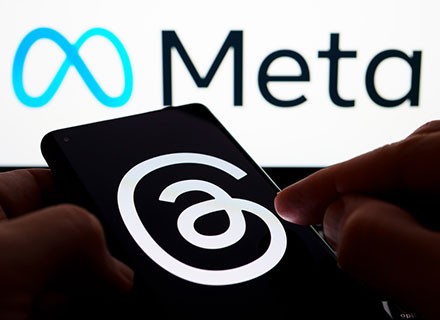Meta boss Mark Zuckerberg has positioned Threads, his company’s Twitter clone program, as a “friendly haven” for online public dialogue, thus setting it apart from Elon Musk’s more antagonistic Twitter.
Immediately following the service’s debut in July 2023, Mark Zuckerberg declared, “We are certainly focusing on kindness and making this a welcoming place.”
It’s another matter entirely to keep Threads true to that idealistic aim after it garnered over 70 million users in its first two days of launch. As per the latest reports, it has achieved the mark of 100 million signups in just five days since July 5 (its launch day).
Meta Platforms is not a novice in controlling the smut-posting, rage-baiting online masses. The business declared that the guidelines it enforces on Instagram, a social media platform for sharing photos and videos, would also apply to users of the new Threads app.
To veer more toward entertainment and away from journalism, the owner of Facebook and Instagram has also been actively embracing an algorithmic approach to putting up content, giving it greater influence over the kind of fare that succeeds.
The appeal of microblogging to news junkies, politicians, and other fans of rhetorical conflict, however, as well as the connection of Threads to other social media platforms like Mastodon, mean that Meta is also courting new obstacles with Threads and attempting to forge new course through them.
First off, according to business spokesperson Christine Pai in an email statement, the Mark Zuckerberg-led business would not expand its current fact-checking program to Threads. This removes a unique aspect of how Meta handled false information on its other apps.
Pai stated that posts on Facebook/Instagram labelled as fake by fact-checking partners, including a division at Reuters, will also carry their labels across if uploaded on Threads.
When Reuters asked Meta why it approached false content on Threads differently, Meta declined to comment.
Adam Mosseri, the CEO of Instagram, acknowledged in a New York Times podcast that Threads was more “supportive of public discourse” than Meta’s other services and thus more likely to attract a news-focused audience, but claimed the company aimed to concentrate on lighter topics.
But right away, Meta’s ability to remain above controversy was questioned.
Within hours of its inception, accounts on Threads reviewed by Reuters discussed the Illuminati and “billionaire satanists,” while other users engaged in arguments and comparisons to Nazis over issues ranging from gender identity to violence in the West Bank.
After labels emerged alerting potential followers that they had posted fake information, conservative figures, including the son of former United States President Donald Trump, complained of censorship. Those labels were incorrect, according to a different Meta representative.

